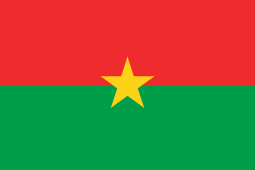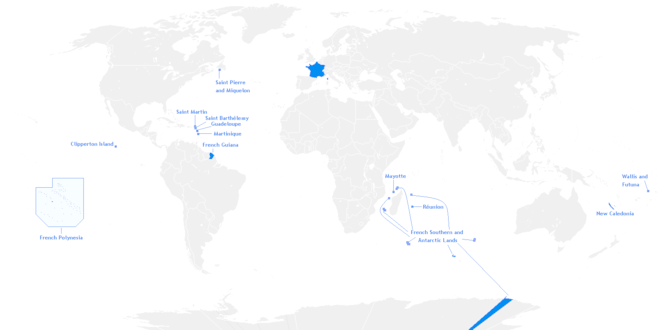Republic of Upper Volta
Republic of Upper Volta République de Haute-Volta (French) | |||||||||
|---|---|---|---|---|---|---|---|---|---|
| 1958–1984 | |||||||||
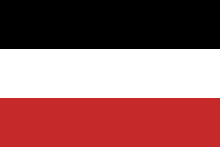 Flag
| |||||||||
Motto: "Unité – Travail – Justice" (in French) "Unity – Work – Justice" | |||||||||
Anthem: "Hymne National Voltaïque" | |||||||||
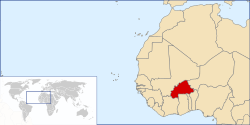 | |||||||||
| Capital | Ouagadougou | ||||||||
| Common languages | French | ||||||||
| Government | Republic | ||||||||
| President | |||||||||
• 1959–1966 | Maurice Yaméogo | ||||||||
• 1982–1983 | Jean-Baptiste Ouédraogo | ||||||||
• 1983–1984 | Thomas Sankara | ||||||||
| High Commissioner | |||||||||
• 1958–1959 | Max Berthet | ||||||||
• 1959–1960 | Paul Masson | ||||||||
| Prime Minister | |||||||||
• 1971–1974 | Gérard Kango Ouédraogo | ||||||||
• 1983 | Thomas Sankara | ||||||||
| Historical era | Cold War | ||||||||
| December 11 1958 | |||||||||
| August 5, 1960 | |||||||||
• Renamed | August 4 1984 | ||||||||
| Currency | CFA franc | ||||||||
| |||||||||
| Today part of | |||||||||
Part of a series on the |
||||||||||||||
|---|---|---|---|---|---|---|---|---|---|---|---|---|---|---|
| History of Burkina Faso | ||||||||||||||
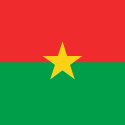 | ||||||||||||||
|
||||||||||||||
|
||||||||||||||
The Republic of Upper Volta (French: République de Haute-Volta), now Burkina Faso, was a landlocked West African country established on December 11, 1958, as a self-governing colony within the French Community.[1][2] Before attaining autonomy it had been French Upper Volta and part of the French Union. On August 5, 1960, it attained full independence from France.[3] On August 4, 1984, it changed its name to Burkina Faso.
Overview
Thomas Sankara came to power through a military coup d'état on August 4, 1983.[4] After the coup, he formed the National Council for the Revolution (CNR), with himself as president. Under the direction of Sankara, the country changed its name on August 4, 1984, from Upper Volta to Burkina Faso, which means "Land of Incorruptible People".[5]
The name Upper Volta indicated that the country contains the upper part of the Volta River. The colors of the national flag corresponded to the names of its three main tributaries — the Black Volta, the White Volta, and the Red Volta.[6]
History
Upper Volta obtained independence on August 5, 1960. The first president of the country, Maurice Yaméogo, is at the head of the Alliance for Democracy and the Federation / African Democratic Rally. The 1960 Constitution establishes the election by direct universal suffrage of the President and the National Assembly for a term of five years. Shortly after coming to power, Yaméogo banned all political parties other than the Alliance for Democracy.
Thomas Sankara came to power by a coup on August 4, 1983. After coming to power, he formed the National Council of the Revolution (NCRC) and became the president of the twenty-man council.
Policy
From 1958 to 1960, the Republic of Upper Volta was led by a High Commissioner:
- Max Berthet (December 11, 1958 to February 1959),
- Paul Masson (February 1959 to August 5, 1960).
From 1971 to 1987, the Republic of Upper Volta was led by a Prime Minister:
- Gérard Kango Ouedraogo (February 13, 1971, to February 8, 1974)
- Thomas Sankara (August 4, 1983, to October 14, 1987)
Symbols
Flag
The three colors of the national flag of Upper Volta come from the fact that the Volta has three parts:
- the Black Volta,
- the White Volta,
- the Red Volta.
National Hymn
In French:
Verse 1:
Fière Volta de mes aieux,
Ton soleil ardent et glorieux
Te revêt d'or et de fierté
Ô Reine drapée de loyauté !
Refrain:
Nous te ferons et plus forte, et plus belle
À ton amour nous resterons fidèles
Et nos cœurs vibrant de fierté
Acclameront ta beauté
Vers l'horizon lève les yeux
Frémis aux accents tumultueux
De tes fiers enfants tous dressés
Promesses d'avenir caressées
Refrain:
Le travail de ton sol brûlant
Sans fin trempera les cœurs ardents,
Et les vertus de tes enfants
Le ceindront d'un diadème triomphant.
Refrain:
Que Dieu te garde en sa bonté,
Que du bonheur de ton sol aimé,
L'Amour des frères soit la clé,
Honneur, Unité et Liberté.
In English:
Verse:
Proud Volta of my ancestors,
Your ardent and glorious sun
Takes you with gold and pride
O Queen draped with loyalty!
Refrain:
We will make you stronger and more beautiful
To your love we will remain faithful
And our hearts vibrant with pride
Will acclaim your beauty
Towards the horizon look up
Frisks with the tumultuous accents
Of your proud children all trained
Caressed promises of future
Refrain:
The work of your burning ground
Endless will soak the ardent hearts,
And the virtues of your children
The girdle of a triumphant diadem.
Refrain:
May God keep you in his goodness,
May the happiness of your beloved soil,
The love of the brethren be the key,
Honor, Unity and Freedom.
This anthem has been replaced since 1984 by a new anthem, the Ditanyè.
See also
- History of Burkina Faso
- List of governors of Upper Volta
- List of heads of state of Burkina Faso
- List of heads of government of Burkina Faso
References
- http://www.africa.com/countries/burkina-faso/afripedia/
- https://www.cia.gov/library/publications/the-world-factbook/fields/print_2109.html
- Meredith, Martin (2013). The State of Africa. Simon & Schuster. p. 69. ISBN 9780857203885.
- https://www.britannica.com/biography/Thomas-Sankara
- "More (Language of the Mossi Tribe) Phrase Book". World Digital Library. Retrieved 16 February 2013.
- https://flagspot.net/flags/bf_uv.html

